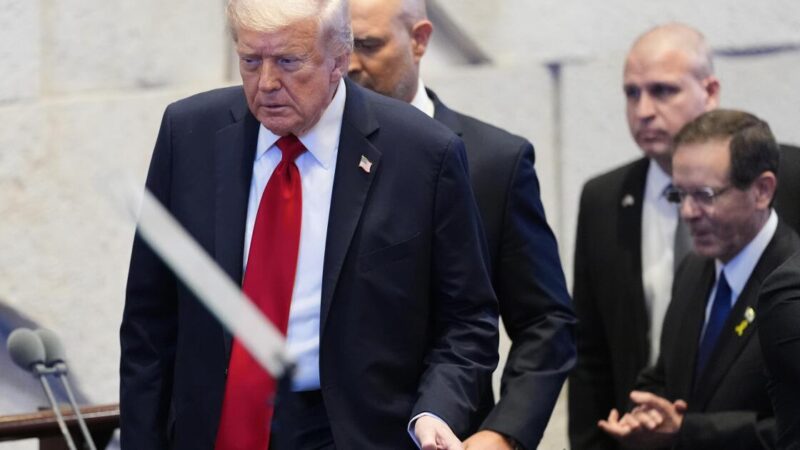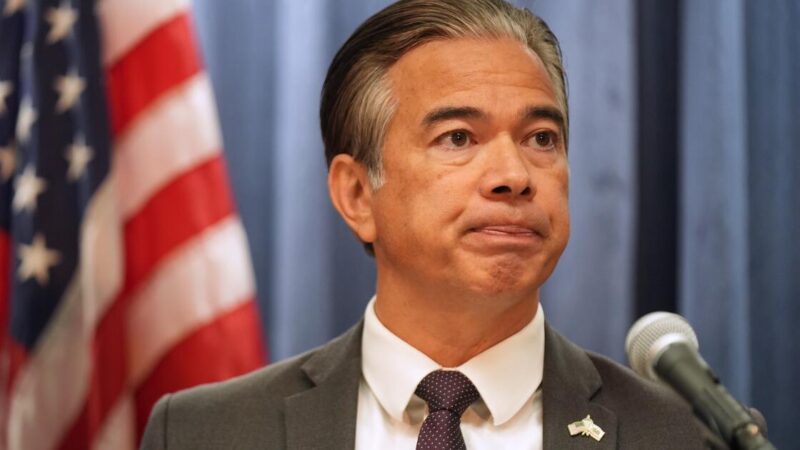It’s not just UCLA. UC president warns of Trump push into all campuses and hospitals
The University of California’s top leader warned Monday that the federal government’s $1.2-billion fine and sweeping proposals to remake UCLA are “minor in comparison” to what could hit the entirety of the nation’s premier university system of campuses, hospitals and clinics.
“As we consider the unprecedented action against UCLA, it is important to keep in mind that the federal government is also pursuing investigations and actions in various stages against all 10 UC campuses,” UC President James B. Milliken said in a Monday letter. “So, while we are first focused on the direct action involving UCLA, we must also consider the implications of expanded federal action.”
The “investigations and actions” range from Trump administration allegations of the illegal use of race in admissions — at Irvine, Berkeley and San Francisco campuses — to civil rights complaints lodged with the Department of Education by Jewish and other community members at UCLA, Davis, San Diego and Santa Barbara campuses. There is also a UC-wide investigation alleging the system discriminates against Jews in hiring, retention and promotion.
Milliken said “the threat that looms” could lead to further layoffs, budget reductions, federal grant suspensions and cuts to the university, California’s second largest employer.
He released his message after The Times on Monday published in an article detailing a wide-ranging 28-page settlement proposal the government sent to UCLA last month. In addition to the fine, the Department of Justice seeks to drastically overhaul campus practices on hiring, admissions, sports, scholarships, discrimination and gender identity.
UC has not agreed to the proposal, which represents the government’s first volley as it seeks to overhaul many of UCLA’s policies and culture to adhere to President Trump’s conservative higher education agenda.
Students, faculty, staff and campus unions are pushing UC to fight back against the Trump administration. Milliken’s Oakland-based office and the governing board of regents is negotiating with federal officials.
On Tuesday afternoon, a coalition of UC unions and faculty organizations will hold a protest at UC San Francisco before the kickoff of a two-day board of regents meeting, the trustees’ first public convening since the UCLA crisis unfolded.
“No concessions. No capitulations. No cuts,” say materials advertising the rally.
UC leaders have made clear they will not pay the $1.2-billion fine — saying it would be “devastating” to all of UC — but have offered minimal public details on how they will otherwise respond to the government’s August settlement proposal. Privately, leaders have said many of the Trump demands cross red lines in violation of the university’s mission and values.
Gov. Gavin Newsom has said he wants UC to sue Trump, saying the proposed settlement over UCLA is “ransom” and “extortion” but it is regents who would decide whether to file suit.

UC President James B. Milliken.
(University of Texas)
In his letter, Milliken aimed to reassure the UC community that “our top priority now is protecting this institution — its resources, its mission and its values — for the sake of everyone we serve.” Still, he said, the current challenges “undoubtedly be a difficult process for our community. The fact is that we are in uncharted waters.”
Individuals within the UC community and faculty groups across the system have asked UC to release the government’s full settlement proposal. As a public institution, UC is required under state law to share a wide range of information upon request. But it has declined public records requests to release the proposal, citing pending settlement and potential litigation matters.
On Monday, a coalition of faculty association groups from the 10 campuses, including UCLA, made a court filing in an attempt to force UC to share the proposal. The filing, in state court in Alameda County, alleged that the university is violating the California Public Records Act.
“Negotiations behind closed doors make it impossible to know what exactly is at stake,” said Anna Markowitz, UCLA Faculty Assn. president and associate professor in the School of Education and Information Studies. Her group is separate from the academic senate, which is the body that formally represents all faculty at UCLA.
“We need to know how an agreement might harm the California economy, the academic success of immigrants and students of color, the lives of trans students and Californians, and our fundamental civil rights,” Markowitz said. “We are asking the university to share the demands, so we can build public support and help UC stand up to this federal attack.”
Annie McClanahan, president of the Council of UC Faculty Assns., said that “as a public university, the University of California has a unique responsibility to Californians, who fund the university through taxes, benefit from research on earthquakes, wildfires, and the housing crisis, and whose children attend UC for college.
McClanahan, an associate professor of English at UC Irvine, said, “Californians deserve to know if their stake in UC is at risk.”
In response to the filing, a UC official said the the university is “fully committed” to transparency.
“We understand the anxiety and uncertainty many in our community are feeling right now,” said UC Senior Vice President of External Relations Meredith Turner. “We are fully committed to being as transparent as possible about what we face while also meeting our obligations to maintain the confidentiality of ongoing investigations and proceedings with the federal government.”
Turner said, “our priorities in this moment are simple: We will stand by our core values while doing all we can to protect the university’s ability to meet its vital mission — improving the lives of everyone, everywhere, through transformational education, new discoveries, exceptional health care and economic growth.”
In his letter, Milliken indicated that further major federal funding losses would “devastate UC and inflict real, long-term harm on our students, our faculty and staff, our patients, and all Californians.” He pointed out that UC receives $17 billion each year in federal dollars, made up of $9.9 billion in Medicare and Medicaid funding, $5.7 billion in research and program support, and $1.7 billion in financial aid for students.
“The funds at risk support the doctors and nurses who care for millions of Californians each year, the researchers working to find new cures and make important technological discoveries, and the financial aid that keeps UC accessible for students of all backgrounds,” he wrote.
“A substantial loss of this federal funding would be devastating for our mission and for the people who depend on us most. It will mean fewer classes and student services, reduced access to health care, tens of thousands of lost jobs across the state, and an exodus of world-class faculty and researchers to other states or countries.”





